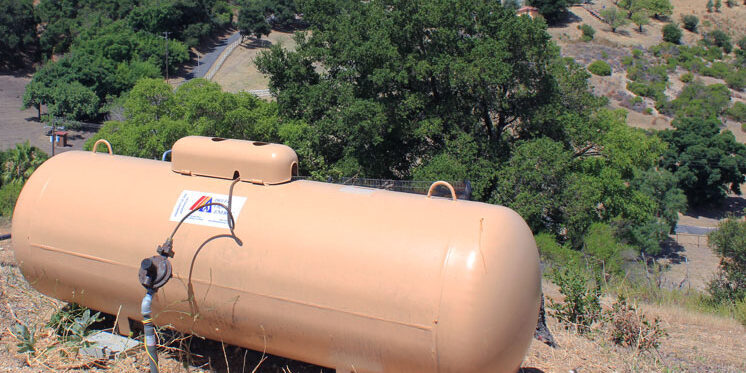
Propane, also called liquified petroleum gas, is a non-toxic, odorless, colorless gas. Because of this, an odorant is typically added to the fuel so it can be detected. It is an affordable, clean energy source and used by many. Propane is primarily for home heating and cooking, to power engines in agriculture equipment and vehicles, for back up power generation, and much more. Propane is typically compressed and stored as a liquid and comes from the refining of crude oil or from natural gas processing. Most of the world’s propane production happens here in North America. Consumers choose to power their homes, businesses, fleets, and farms with propane because it’s clean, abundant, affordable, and domestically produced.
A Clean Fuel
Using propane as an alternative to diesel or gasoline helps to decrease your carbon footprint. Propane produces less greenhouse gas emissions than diesel or gasoline and, when comparing it to the full-fuel life cycle of any other alternative energy, renewable propane comes out on top as the cleanest alternative to traditional fuels. Propane is an approved clean fuel listed in the 1990 Clean Air Act.
An Abundantly Available Fuel
The United States is the world’s leading producer of propane and became a net exporter in 2011. Due to the high volumes, production, transportation, and distribution of propane throughout the U.S., the industry provides nearly 50,000 domestic jobs.
A Cost-Effective Fuel
Propane prices are often lower per gallon than the gasoline or diesel gallon equivalent for fleet owners because the price of propane falls between oil and natural gas. Farmers in California also like the cost of propane. In a recent study, eight farmers in the state saw 48% decreases in fuel costs per operation hour by using propane instead of diesel or electricity to power their irrigation engines.
As with most commodities, supply and demand will also affect the price of propane. Traditionally, if the weather is cooler, there is more propane being consumed nationally and therefore the price will increase. Likewise, in the summer months, when demand is usually lower the price of propane tends to drop. When purchasing propane for your home use, it is important to keep in mind payment options like Delta Liquid Energy’s Pre-Buy Program that will help you save money as propane prices increase.
To learn more about propane, it’s benefits, and where it comes from, please read the Propane Education and Research Council FAQ Page
Globally Harmonized System Safety Data Sheet
The Globally Harmonized System, developed by OSHA, defines and classifies the hazards of chemical products and communicates health and safety information on the labels of such products. Safety Data Sheets are a component of the Globally Harmonized System and are intended to notify the public about chemical mixtures or substances used in the workplace.
To view the Safety Data Sheet for odorized propane please click here.
DLE takes every precaution to ensure our customers’ safety by providing in-depth safety training to all delivery specialists, service technicians, and support personnel. We also offer helpful tips to customers through the “Propane Press” newsletter. Propane leaks and accidents are preventable through proper propane training and education. The experts at DLE work carefully to keep your family safe.
We encourage you to call your nearest Delta Liquid Energy Office immediately if a problem arises with your propane system.
Learn more about propane here.